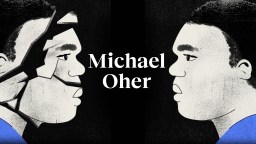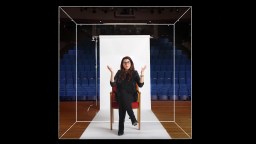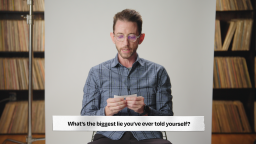For many superheroes, there was a cataclysmic event that changed the course of their lives. For example, Victor Stone was injured by an interdimensional portal, Hal Jordan received a power ring from a dying alien, and Bruce Wayne’s parents were killed in front of him.
Jim Lee, the legendary comic book artist, and Chief Creative Officer for DC Comics, experienced a similarly significant moment in his life. But even though he doesn’t don a mask or a cape, it did change everything for him. “When I was 4 or 5 years old, I remember wandering the streets of Seoul,” he says. “I must’ve crossed the street at a bad time because this small truck came and hit me, and I went underneath. It’s something that could’ve potentially ended my life.”
Luckily, it did not. But neither did he develop super strength from the accident. Instead, he received something that many of us understand all too well: super-strict parents. “The accident affected my parents in terms of how they raised me and the things they were concerned about as I continued to grow,” he says.
One of their key concerns was about his future career. They wanted him to be a doctor; he wanted to be a comic book artist. “I looked at medicine as sort of this very long escalator that you got on, and you rode it all the way to the top, and you got off,” he says. “And I just didn’t want to get on that ride.”
Growing pains
As Lee grew up, he found out that there was another reason for his parents’ sternness and obsession with him following a traditional career path. “My parents fled North Korea when they were very young,” he says. “They grew up in a very destructive, crazy time. Their dream was to come to a safer, better country and provide a better life for their kids. I wish they had told me this when I was a kid because I didn’t know that was the plan! I just knew they were very aggressive in terms of how they wanted me to find true success.”
Moving to America from South Korea was tough for Lee. He didn’t speak the language, he felt like an outsider at school, and a future he didn’t want had already been laid out for him. But he did find solace in the comic book world’s most famous alien.
“Superman was an immigrant,” Lee says. “He’s the ultimate immigrant. The last immigrant from a dead planet. I think I instantly glommed onto that as something that brought me into American culture and provided sanctuary. I understood this idea of putting on eyeglasses and being a different person because I think that’s what I was doing when I was going to school. I had my American side, and then when I was home, I had my Korean side.”
Secret’s out
There’s only so long a hero can maintain their secret identity from those close to them. After Lee graduated from Princeton with a degree in psychology, he revealed his true self to his parents and shared his plan to push back his application to medical school in order to focus his energy on breaking into the comic publishing industry. Unsurprisingly, they were not thrilled. “It got very heated and emotional, and it ultimately resulted in me running out of the house,” he says. “My father ran after me and calmed me down. I think they understood the level of commitment I had towards this dream. They were very tough on me, but at the same time, I’m thankful for that because I don’t think I’d be the person I am today without that push.”
Lee told his parents that if he couldn’t succeed as an artist within a year, then he would apply to medical school, so he had to bunker down and put the hours in. There was just one small problem: he had no idea where to begin. “I’d never drawn a comic book before,” he says. “I got a small drafting table and set it up literally next to my bed. Every day, I would wake up, roll straight from bed into the chair and start drawing. I did that each and every day to the point where my knuckles got really sore. Drawing was a brutal sort of physical transformation, going from being a civilian to someone that was drawing up to ten hours hunched over a drafting table each and every day. But I proved to myself that I could do it.”
Incredibly, it only took four months out of his 12-month countdown for him to get noticed, which he did by showing his work off to editors at a comic book convention. This landed him his first job at Marvel in 1987, where he had the opportunity to put his own stamp on titles such as the Uncanny X-Men and The Punisher. To this day, he still holds the Guinness World Record for best-selling single edition comic (over 8 million copies) with X-Men #1 (1991), for which he was the penciler and co-writer.
Lee then went on to start his own company, WildStorm Productions, which he eventually sold to DC in 1998. He joined DC at the same time and went on to illustrate various iterations of Batman and Superman, working alongside successful writers such as Scott Snyder. Over two decades later, he’s now the President, Publisher, and Chief Creative Officer of DC Comics. Not too shabby for someone who’d never drawn a comic before pursuing their dream, right?
Breaking the cycle
Lee may not have always agreed with his parents when he was younger – but he always recognized that they had his best interest in mind.
“I don’t think I have mixed feelings about the way my parents raised me,” Lee says. “I have perspective now, being almost 59 and having nine kids of my own, I understand where they came from. I’m so thankful that my kids have a different life and that they don’t have to necessarily have that vision and how they perceive themselves. They can embrace who they truly are in all aspects of life because that was not the experience I had as a kid.”
That’s an incredible gift to give to your children. Perhaps Lee has a superpower, after all.
We interviewed Jim Lee for Perception Box Stories Untangled, a Big Think interview series created in partnership with Unlikely Collaborators. As a creative non-profit organization, they’re on a mission to help people challenge their perceptions and expand their thinking. Often that growth can start with just a single unlikely question that makes you rethink your convictions and adjust your vantage point. Watch Jim Lee’s full interview above, and visit Perception Box to see more in this series.
Words: Jamie Carson
JIM LEE: I think a lot of my problems, I blame on that accident, to this day. I was born in Seoul, South Korea. The life I remember as a little kid, there's a lot of intense nostalgia. I remember things around food and the delivery of black bean noodles to the house. I remember drawing a lot. I had an art teacher that came to the house, and we would just draw in oil pastels. I remember watching the Max Fleischer-directed "Superman" cartoons. Sort of diving into these fantastical worlds was something I did at a very, very early age. I think probably my strongest memory, probably when I was like four or five years old. I remember hanging out with a lot of other, like four-year-old kids, wandering the streets of Seoul, and I must have crossed the street at a bad time. And this small truck came and hit me, and I went underneath the truck. I just remember kind of coming to in the hospital. My father was a doctor, so he was there. It was something that could have potentially ended my life at a very young age; that probably affected my parents more in terms of how they raised me, and the things that they were concerned about as I continued to grow and evolve. So, comics, trauma, art. That was the be-all, end-all of my childhood.
My parents were very young when they fled North Korea, when the Korean War started in 1950. They grew up in a very destructive, uncertain, crazy time. Their dream was to come to a safer, better country and provide a better life for their kids. I wish they had told me all this when I was a kid because I had no idea that that was the plan. I just knew that they were just really aggressive in terms of how they wanted me to find true success. When we moved to Warren, Ohio, I didn't speak any English, but there was Superman. He also was an immigrant; he's the ultimate immigrant. He's the last immigrant from a dead planet. I think I instantly glommed onto that as something that brought me into American culture and provided sanctuary, I think, from probably everyday anxiety, everyday pressures that I felt as an immigrant kid that really didn't fit in, that desperately wanted to fit in. And so that led to a lot of weird, uncomfortable thoughts and things that I feel very sort of embarrassed about today. I felt ashamed to be Korean. So I understood this idea of putting on eyeglasses and being a different person because I think that's what I was doing when I was going to school. I had my sort of American side, and then when I was home, I had my Korean side.
In a Korean household, fear of failure is a big thing, right? That you won't get the good grades, you won't get into medical school, you won't be a success in life. And I think one of the reasons my parents wanted to move to America was for the proverbial American Dream. And I think they really wanted me to follow my father's footsteps as a doctor because it represented security. I looked at medicine as sort of this very long escalator that you got on and you rode it all the way to the top, and you got off- and I just didn't want to get on that ride. I wanted to get a job. I wanted to work in comic books. And I had that dream ever since I was like, And I remember after I graduated, having this conversation in our family room. I sort of laid this plan out to them, where I would take a year off from applying to medical school. It got very heated, very emotional, and it ultimately resulted in me running out of the house. My father ran after me, and he just sort of calmed me down. I think they understood the level of commitment I had towards this dream. They were very tough on me, but at the same time, I'm thankful for that because I don't think I'd be the person I am today without that push. And looking back on it, I was obsessed with this idea. I looked at everything I was doing as something that would help me to obtain this dream of being a comic book artist. In my head, I was thinking, "If I'm gonna do this, I have to prove to myself that I can." I've never drawn a comic book before. I got a small drafting table. I set it up literally next to my bed. Every day, I'd wake up, roll straight from bed into the chair. I would start drawing. I did that each and every day, to the point where my knuckles got really sore and I pinched a nerve and my Dad got me a shoulder brace that kind of pulled my shoulders back. It was a brutal sort of physical transformation from being a civilian to someone that was drawing 8 to 10 hours, hunched over a drafting table, each and every day. But I proved to myself that I could do it. And I think they saw really how much I wanted it and how much I was willing to work towards it. I definitely remember when I was fighting with my parents over what I was gonna do with my life- mentally in my head I said, "I will never, ever put this kind of pressure on any of my kids." I don't even think I have mixed feelings about the way my parents raised me. Certainly I have perspective now, being almost 59, having nine kids of my own. I understand where they came from. And I don't blame them for anything. I would hate for people to waste their time doing things that they felt others expected of them. There was a great impact and power in recognizing your true self. And it's not something that I saw till much, much later. And I'm so thankful. I'm so thankful that my kids have a different life, and that they don't have to necessarily have that division in how they perceive themselves. They can embrace who they truly are in all aspects of life because that was not the experience I had as a kid.






